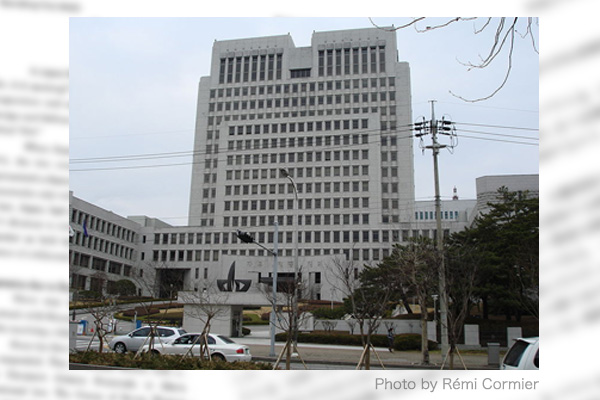Candidates have been selected for the South Korean presidential election to be held in March 2022. The largest conservative opposition People Power Party has picked former Prosecutor General Yoon Seok Youl against former Gyeonggi Province Governor Lee Jae Myung fielded by the ruling leftist Democratic Party of Korea. In addition, Ahn Cheol Soo of the centrist opposition People Party and Lee Sang Jung of the ultraleft Justice Party have declared to run in the presidential election.
Opposition candidate Yoon cannot be expected much
A focus hidden behind the selection of presidential candidates has been the possible restoration of the rule of law in South Korea. Since 2015, the Japanese government has refrained from describing South Korea as sharing the same values because South Korea has compromised the rule of law as one of universal values that also include liberal democracy, market economy and human rights. Triggering such attitude of the Japanese government was the criminal prosecution of the then Sankei Shimbun newspaper’s Seoul Bureau chief in 2015 for writing a story about rumors regarding then South Korean President Park Geun Hye. Also indicating the collapse of the rule of law in South Korea was a court ruling in 2018 on compensation payments to wartime Korean workers in Japan and this year’s ruling on compensation payments to wartime comfort women. These rulings were against agreements with Japan.
I had placed hopes on opposition candidates, ignoring any ruling party candidate who would inherit the Moon Jae In administration’s destruction of the rule of law. Having analyzed the above-cited opposition candidates, however, I cannot but to sigh that South Korea will not restore the rule of law under the next president.
The 2016-2017 impeachment of then President Park came as law and truth were trampled down, with the then conservative ruling party betraying Park in fear of street rallies fanned by fake reports. Park, who was sentenced to 20 years in prison is still in jail, had never received any bribe money, as clarified in the ruling. However, the provision of a horse from Samsung Electronics to a national representative equestrian rider who is a daughter of Choi Soon Sil, a friend of Park’s, was ruled as one of bribes Park had received.
Prosecutors came up with a strange allegation that Park had formed an “economic union” with Choi and Samsung had made an “implicit request” regarding its management succession issue to Park. Park and Choi had shared no property and Samsung had requested no convenience from Park. Still, the court accepted prosecutors’ allegation.
An extraneous neighbor
Yoon Seok Youl was responsible for producing the strange allegation. As head of the special prosecutor’s team for investigation of Park and chief of the Seoul Central District Prosecutors’ Office, Yoon led prosecutors in the investigation and trial of Park. In 2019, the Moon administration gave Yoon credit for the Park investigation and appointed him as prosecutor general. When the administration attempted to implement a prosecution reform to deprive prosecutors of some investigation power, however, Yoon investigated the alleged wrongdoing by then Justice Minister Cho Kuk, who engineered the reform, in a bid to protect prosecutors, forcing Cho to resign. Seeing this fight, conservative citizens critical of Moon cheered and supported Yoon. They may expect that Yoon, if elected president, would arrest Moon and his subordinates.
South Korea is a considerably extraneous country in terms of the rule of law. A small number of conservative leaders have criticized Yoon from the viewpoint of the rule of law but failed to exert any influence on public opinion. Japan, which cannot sever security and economic relations with South Korea, has no choice but to keep a distance from South Korea due to the fact that the rule of law is not working there.
Tsutomu Nishioka is a senior fellow and a Planning Committee member at the Japan Institute for National Fundamentals and a visiting professor at Reitaku University. He covers South and North Koreas.


